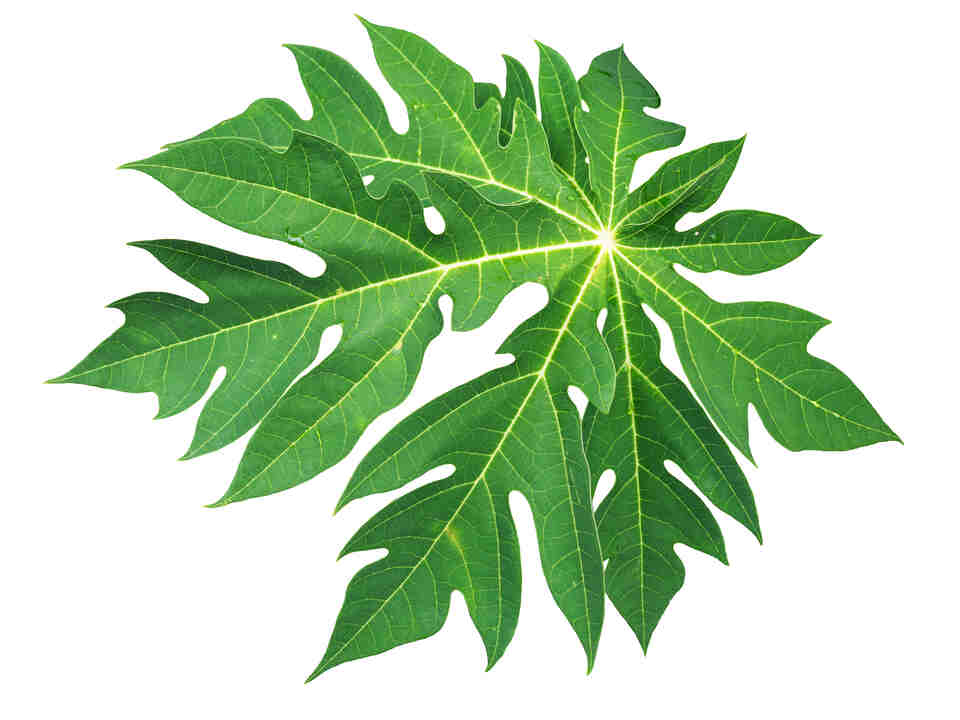In a world where we’re constantly searching for the next big thing in health and wellness, sometimes the answer is hiding in plain sight. Or, in this case, dangling from a tree in your neighbour’s backyard.
Humble papaya. Not content with being a delicious tropical treat, it’s now strutting its stuff in the world of natural remedies. And its leaves? They’re the unsung heroes in the fight against dengue fever.
But how did we get here? How did we go from slicing papayas for breakfast to crushing their leaves for medicine?
It’s a journey of curiosity, necessity, and a dash of desperation. In India, where dengue fever affects thousands annually, people started looking beyond conventional treatments. They turned to ancient wisdom, rediscovering the healing potential of plants that have existed for millennia.
And so, the papaya leaf made its grand entrance into the world of modern medicine. Not with a bang but with a quiet rustle of leaves and a squeeze of bitter juice.
The Dengue Dilemma
Dengue fever isn’t just a nuisance. It’s a menace that affects millions globally, with India bearing a significant brunt of its impact. According to the National Vector Borne Disease Control Programme, India reported over 193,000 dengue cases in 2021 alone. That’s not just a statistic; it’s a wake-up call.
In the face of such overwhelming numbers, people turn to nature for answers. And nature, in its infinite wisdom, seems to be whispering, “Try papaya leaves.”
The Promise of Papaya
What’s the big deal about papaya leaves? They’re bitter and not exactly appetizing, yet they’re becoming the talk of the town in dengue management circles.
Papaya leaves are packed with enzymes like papain and chymopapain. These aren’t just fancy scientific terms; they’re potential game-changers in boosting platelet counts, which plummet dangerously low in dengue patients.
But before you rush to your nearest papaya tree, let’s break it down.
1. The Good
Studies show promise. Research published in the Asian Pacific Journal of Tropical Biomedicine found that papaya leaf extract significantly increased platelet counts in dengue patients.
2. The Bad
It’s not a miracle cure. Papaya leaf juice is a complement to medical treatment, not a replacement.
3. The Ugly
Overconsumption can lead to side effects. As with anything, moderation is key.
The Papaya Protocol
Now. You want to give papaya leaf juice a shot. But how do you go about it without turning your kitchen into a botanical disaster zone?
Here’s a simple guide
1. Pick fresh, mature papaya leaves.
2. Wash them thoroughly. You’re looking for medicine, not a side of pesticides.
3. Remove the stems and veins. They’re bitter, and not in a good way.
4. Blend or crush the leaves with a bit of water. It’s like making a smoothie, but you probably won’t enjoy drinking one.
5. Strain the mixture. Unless you fancy a mouthful of leaf bits.
6. Collect the juice in a clean container. Congrats, you’ve just made papaya leaf juice!
The dosage?
Typically, 1-2 tablespoons twice daily for about 5-7 days.
Here’s the precaution
Always consult a healthcare professional before starting. This isn’t a DIY project you want to mess up.
The Papaya Paradox
Here’s where it gets interesting. While papaya leaf juice shows promise, it still needs its quirks.
1. It’s bitter. Bitter. Like “I-just-ate-a-lemon-wrapped-in-spinach” bitter.
2. It’s not for everyone. Pregnant women, people with allergies, and those on certain medications should steer clear.
3. It’s not a standalone treatment. Think of it as Robin to conventional medicine’s Batman.
4. Results can vary. What works wonders for one person might do zilch for another.
The Science Behind the Leaves
Let’s read into the research pool.
1. A study in the Journal of Ethnopharmacology found that papaya leaf extract increased platelet and red blood cell counts in dengue patients.
2. Research published in Evidence-Based Complementary and Alternative Medicine showed that papaya leaf juice significantly increased platelet counts within 24 hours of administration.
3. A systematic review in the Journal of the Egyptian Society of Parasitology concluded that papaya leaf extract effectively increases platelet counts in dengue patients.
While these studies are promising, they must be more definitive. More research is required to fully understand how papaya leaf juice works and its long-term effects.
The Papaya Perspective
Here’s the thing about natural remedies: they’re not magic potions. They’re tools in our health arsenal that can be used wisely and in conjunction with modern medicine.
Papaya leaf juice isn’t going to eradicate dengue fever single-handedly. But it might just give patients an edge in their recovery. It’s nature’s way of lending a hand, of saying, “Hey, I’ve got your back.”
And in a world where dengue fever continues to pose a significant threat, especially in countries like India, every bit of help counts.
The Final Squeeze
Where does this leave us? With a glass of bitter green juice and a whole lot of hope.
Papaya leaf juice isn’t the answer to all our dengue woes, but it’s a step in the right direction. It reminds us that sometimes, the solutions to our biggest health challenges are growing in our own backyards.
As we battle dengue and other mosquito-borne diseases, let’s remember the power of nature. Let’s embrace the bitter with the sweet, the traditional with the modern, and the leaf with the fruit.
In the world of health, every leaf counts. Even the papaya ones.

